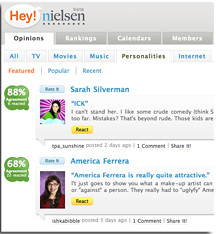
"We're hearing your feedback and reading through it all. One of the strongest signals is that folks were using this setting to discover and follow new and interesting accounts—this is something we absolutely want to support." — Twitter
That is how it happens with online services. After Twitter went out on a limb and made a fundamental change to its service, specifically the option to receive public messages from people they are not following, the entire community pushed back, many of them rightly calling it a disaster. Some are saying that this might be the change that lifts friendfeed to the forefront or even cause Twitter to fail outright. That leaves only a few who, well, disagree.
After receiving the feedback, Twitter did what it ought to have done in the first place — communicate with its community. However, as Mashable points out, addressing the feedback and returning the function that many participants enjoy are two very different things. Now, Twitter, a service that participants made the poster child for authenticity, looks like it whitewashed the real reason behind the change.
You can track the customer comments right here: #fixreplies. It's a rough critique of a service change and testament to why communication continues to remain a struggle for social networks.
Choice has always been a fundamental part of the online social equation.
What does the change really mean? If you are not familiar with Twitter, you might not understand the service change. Simply put, someone could write to you (probably because you were talking about a subject that interested them) by including the "@" in front of your account name. That message, or tweet, would appear in your thread, making it easy to see and respond to.
Without that service, you may never know someone sent that message to you, unless you followed him or her from the start. Not everybody used the service. People had a choice. For people with thousands or hundreds of thousands of followers, they could choose to see only those messages from those they followed. For anyone looking to meet new people, not so much.
Personally, I've grown to like Twitter. I like it enough that I speak about it from time to time. I especially like it because they've always given their participants choices. And, I hope those feelings don't change since they say they "learned a lot."
But there is something else to learn: Never become too attached to a tool.
Online tools change all the time. And very often, the change is not for the better. Technorati, once the premier place for bloggers to connect, seems to be struggling. MyBlogLog has become fairly flat. Entrecard spiked on the promise of cash, but now that's eroding. Hey! Nielsen is in redesign. And Utterli, after rebranding, just isn't the same. There are hundreds more. Some of them long closed.
All of them have one thing in common. At some point, usually when unduly scared or overly secure, they start making big and rapid changes without communication beyond their inner circles. Jumping on the advice of high profile "experts" instead of regular members, they might even feel smug to make them. But then, after awhile, they notice that the inner circle is all they have left.
Choice has always been a fundamental part of the online social equation. And ultimately, members may choose to go somewhere else.


















